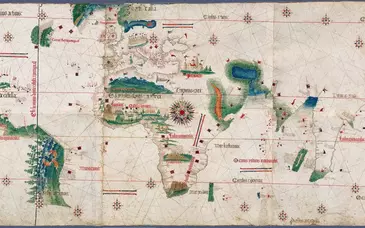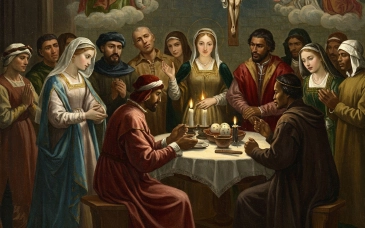Christianity is the fulfillment of Judaism. The many Messianic prophecies of the Hebrew Scriptures were fulfilled in Jesus Christ. Judaism is incomplete without Him, and cannot make sense if His claim to be the Messiah is rejected.
The New Testament, or New Covenant, is a fulfillment of Jeremiah's prophecy that the Lord was going to make a new covenant with the house of Israel. According to this New Covenant, He would write the law upon their hearts, He would forgive their iniquity, and remember their sin no more (Jeremiah 31: 31-34). The book of Hebrews (Chapters 8-10) explains how this New Covenant was fulfilled in Jesus Christ.
Christianity is thoroughly Jewish. Jesus was Jewish, all of his disciples were Jewish, and, at first, the early Church was Jewish. These people recognized that Jesus was the long-awaited Jewish Messiah. According to the prophet Daniel, the Messiah was to come before the destruction of the second temple at Jerusalem (Daniel 9:26), which took place in A.D. 70.
The Messiah was to die by crucifixion, according to Psalm 22:16 ("They pierced my hands and feet"). The Jewish people as a whole would not know that their Messiah was the crucified one until the siege against Jerusalem at the end of the age, when "they will look on Me whom they have pierced; and they will mourn for Him, as one mourns for an only son." (Zechariah 12:10).
We have already examined the fulfillment of the many Messianic prophecies in Jesus Christ. He was to be born in Bethlehem (Micah 5:2), of a virgin (Isaiah 7:14). He was to be a prophet like Moses (Deut. 18:15-19). He would enter Jerusalem in triumph (Zech. 9:9). He was to be rejected by His own people (Isaiah 53:1,3), betrayed by one of his followers (Psalm 41:9), tried and condemned (Isaiah 53:8). He was to be silent before His accusers (Isaiah 53:7), smitten and spat upon by his enemies (Isaiah 50:6), mocked and taunted (Psalm 22:7,8), and crucified (Psalm 22:16). He was to suffer with transgressors (Isaiah 53:12), and be given vinegar and gall (Psalm 69:21). They were to cast lots for Messiah's garments (Psalm 22:18), and His bones were not to be broken (Numbers 9:12, Exodus 12:46). The Messiah was to die as a sacrifice for sin (Isaiah 53:5-12). Any casual reading of the New Testament will demonstrate that Jesus fulfilled all of these Messianic prophecies, and many more.
Jesus indicated quite clearly that He would be coming again in the clouds of heaven, as is prophesied of Messiah in Daniel 7:13,14. He will sit on the throne of David and reign over all of the earth (Isaiah 9:6,7, Psalm 72:8,11).


